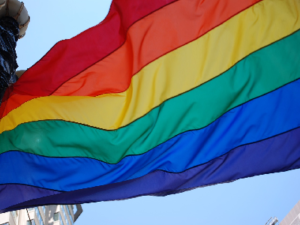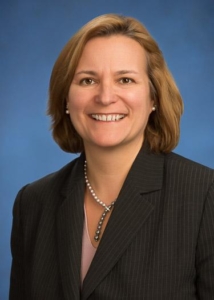By Aimee Hansen
Every June is celebrated on the diversity calendar as Pride Month in many corporations and we also like to update you on the progress being made for LGBT professionals and shine a light also on how straight allies can help advance talented individuals who may identify as LGBT in your office.
Out Now’s LGBT 2020, the world’s largest LGBT research project, puts a $9 billion a year cost on not paying attention to this issue. That’s how much the US economy could save if organizations were better at implementing diversity and inclusion policies for LGBT staff, or to make it clear, if LGBT employees felt more comfortable.
The “LGBT Diversity: Show me the business case” research measures the financial savings for companies who foster an inclusive work culture where LGBT employees are comfortable to be themselves. The research reveals that LGBT staff who are open with all co-workers about their sexuality are significantly more likely to stay in their job than those who are not out to anyone at work, creating a rewarding staff retention dividend.
Ian Johnson, Chief Executive of Out Now, says, “This report for the first time enables companies to see exactly why investing in a more equitable and supportive workplace for everyone is a sound business investment that demonstrates solid returns.”
Corporate Culture is Key
The degree to which formal corporate LGBT diversity & inclusion policies are effective may come down to how well they are truly reflected informally within the corporate culture.
The aforementioned LGBT2020 study found that among a diverse range of workers in the USA, 38% were out to everybody (and more likely to strongly disagree with leaving their job in the near future) while 35% of people were out to nobody or a few trusted people.
The researchers saw a 6% drop in those “out to all” (38% vs 44%) over the last two years, stating “This represents a significant and worrying fall, especially when LGBT workplace diversity has been placed on the agenda of an increasing number of larger US companies during this time.” They speculate this could reflect a toning down related to the saliency of marriage equality being pitched against religious beliefs. Half of those LGBT employees surveyed reported overhearing homophobic comments at work.
Being fully out correlated with a 30% productivity benefit. Among USA employees “out to all”, 67% strongly agreed they were “respected as a productive and valuable team member.” But among those “out to no one”, only 38% felt so.
When it came to feeling that coming out could impact upon future promotions in the workplace, 24% of lesbians, 30% of gay men, 40% of bisexuals, and 55% of transgender employees agreed. And while 80% of employees rated diversity policies at their next company as fairly or very important, only 45% would feel comfortable to ask about those policies in an interview. That highlights the subtle difference between corporate policies and corporate culture.
Discriminative Nuances of the Corporate Closet
The LGBT 2020 statistics echo the findings of HRC’s Cost of the Closet survey of 800 LGBT workers. This research reported an “invisible workforce” of 53% of LGBT employees “having to hide in plain sight”. The study showed that employers are losing talent and engagement due to “treatable problems with workplace environment or culture.”
The study identified overseen dynamics that contribute to social exclusion, since work culture largely consists of informal conversations and cues: “The primary influences on workplace cultures are so ubiquitous, they are almost easy to miss.”
For LGBT employees, daily non-work related conversations about weekend and dinner plans and photos on your desk create an identity-related dilemma. While “81% of non-LGBT respondents feel that LGBT people ‘should not have to hide’ who they are in the workplace,” the reality is that “less than half of non-LGBT employees would feel comfortable hearing LGBT workers talk about dating.”
So it’s no surprise that 35% of LGBT employees felt compelled to lie about their personal lives, many reporting exhaustion and distraction.
The researchers reported, “This double standard emerges in our study, where frequent personal conversations occur among coworkers, and LGBT employees are receiving the message that their contributions are not welcome, or worse, inappropriate. In fact, 70% of non-LGBT workers agree that ‘it is unprofessional’ to talk about sexual orientation or gender identity in the workplace.”
While sharing is an intrinsic part of any corporate culture, not everyone’s sharing is received equally: “When sharing the same day-to-day anecdotes with co-workers, LGBT people are seen as over-sharing, or forcing their ‘lifestyle’ upon co-workers.”
Missing Out on Networks
An Italian study found a culture of silence, “prevents LGBT employees from constructing a work identity which encompasses their sexual identity and prevents the organizations from achieving their aim of being fully inclusive workplaces.” It would appear so does a cultural of cues of subtle disapproval.
The HRC researchers point out that not being able to be open at work “can isolate a person and erode valuable rapport with co-workers, managers and would-be mentors.” Some of the top reasons for not coming out include making co-workers feel uncomfortable or losing connection with them, but when LGBT employees feel compelled to hide their lives, they are already cut off.
This matters to career development. LGBT employees risk being excluded from informal networks that can lead to career advancement, the invisible channels through which individuals build trust and rapport with colleagues and get noticed for sponsorship and advancement by senior management. This kind of social exclusion doesn’t require official discrimination, just the right amount of invisible cues and signals.
Corporate Non-Discrimination Policies Are Improving
The Corporate Equality Index compiled by the Human Rights Campaign (HRC) for 2015, the national benchmarking tool on LGBT corporate policies and practices, reports that a record 366 businesses (20% increase on 2014) have earned a top score of 100 percent and distinction of “Best Places to Work for LGBT Equality.”
The criteria is based upon equal benefits for same-sex partners and spouses, ending benefits discrimination for transgender employees and dependents, firm-wide organizational competency on LGBT issues, and public commitment to the LGBT community.
This is nearly double the companies who earned that ranking three years ago in 2012 and the report notes that transgender progress is greatest – with a rising number of companies offering healthcare, transition support, and gender-identity non-discrimination.
Federal Non-Discrimination Policies Are Lacking
Chad Griffin, President of the HRC Foundation, remarks there’s still a long way to go. “Despite 66% of all Fortune 500 companies now including gender identity in the employment protections, we know that this does not always translate into everyday inclusion of the transgender community. While many companies are leading the way, our nation’s federal non-discrimination protections are lagging behind. Critical cultural shifts need to take place to foster greater inclusion.”
This is true for LGBT inclusion broadly. Sarah McBridge at the Center for American Progress, introducing her co-authored We The People report for governmental LGBT non-discrimination, illustrates the atmosphere of uncertainty for LGBT employees: “In 14 states, individuals can legally marry their same-sex partner on Sunday and then legally be fired from their jobs on Monday simply for exercising that right.”
It turns out that “out and proud” are valuable words indeed. The opposite is costly both to LGBT individuals and to organizations.






